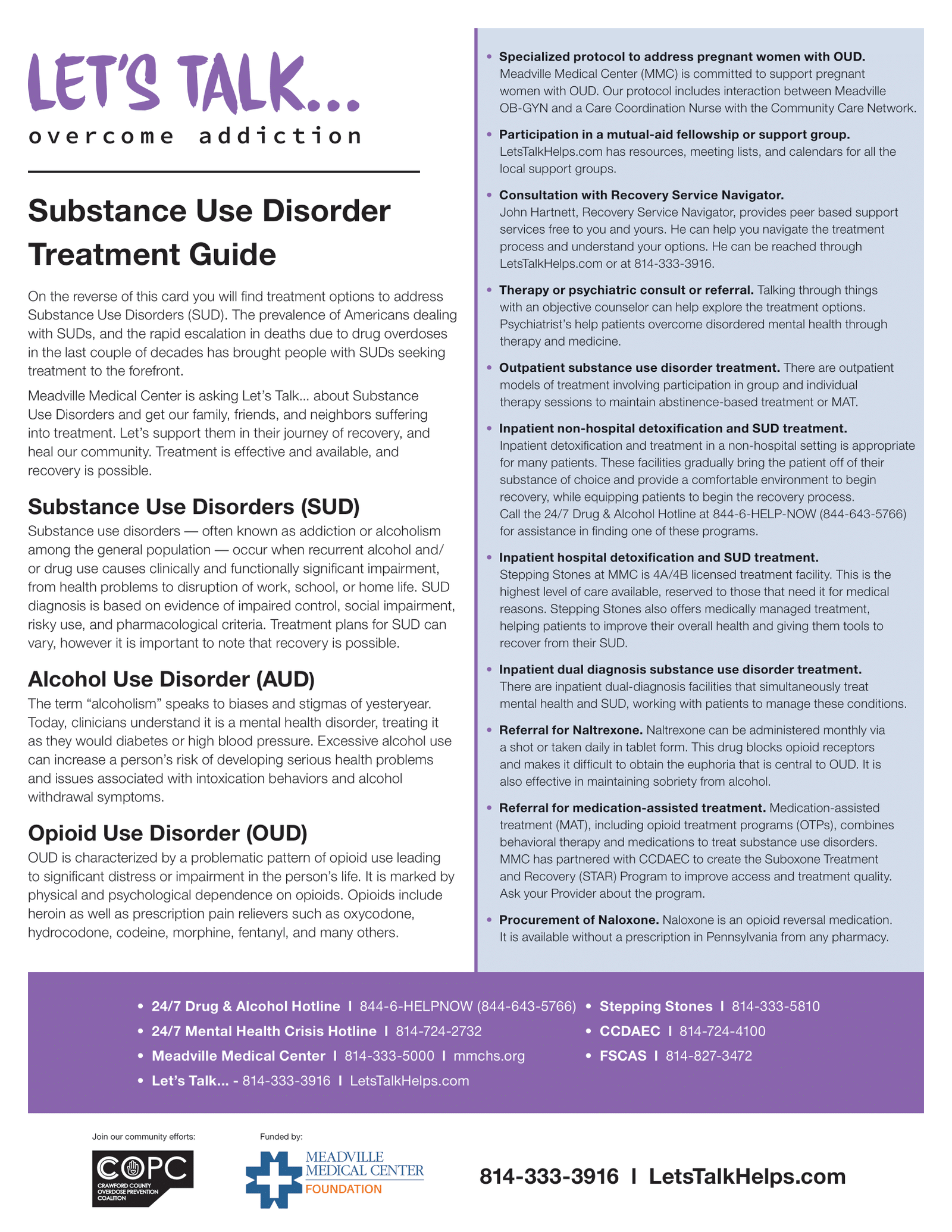Treatment for Substance Use Disorders (SUD)
There are many ways of going forward, but only one way of standing still.
Franklin D. Roosevelt
There are a wide variety of treatment options for those with a Substance Use Disorder, Opioid Use Disorder, or Alcohol Use Disorder. These are chronic diseases that are commonly referred to as addiction or alcoholism in the public square.
With any chronic illness, finding the right treatment is the first step toward disease-management and living life. Addiction is no exception.
Research has shown that most people need at least three months in treatment to significantly address, reduce, or stop their substance use, and best outcomes are associated with longer durations of engaged treatment.
Addiction is a disease, and it can be treated.
Research shows that addiction affects brain function and behavior, and overcoming it has nothing to do with willpower or weakness. Drug use causes physical and permanent changes to the brain, and those changes must be addressed to become substance-free.
Every addiction is unique—so every treatment must be unique.
Not only does treatment depend upon the type of drug involved, but it also depends upon the person with the substance use disorder. Personal and family history with drugs, mental health concerns, and other factors must be taken into consideration to form an effective treatment plan.
Treatment should address both the substance use and the whole health of the patient.
Detoxification isn’t enough to manage a substance use disorder. A holistic approach to addressing the mental health, personal health, family, work and other relationships and environmental factors must also be addressed to ensure long-term success.
Treatment takes time and commitment.
Recovery from addiction usually requires multiple steps, from initial detoxification to behavioral therapy and support programs. As with other chronic illnesses, there may be relapses or additional types of treatment may be needed. Understanding and accepting that a person must stay in treatment for as long as necessary is critical for maintaining recovery on a long-term basis.
Local Drug and Alcohol Treatment Providers
Crawford County
If you are a Crawford County resident the best way to find inpatient treatment for your drug and alcohol use is calling the local 24/7 Drug & Alcohol Hotline. They will do an assessment and complete a bed search to place you in the appropriate level of care.
Crawford County Drug and Alcohol Executive Commission
Mercy House
Stepping Stones | Meadville Medical Center
Family Services and Children’s Aid Society
Erie County
Erie County Drug and Alcohol
Gaudenzia Crossroads Erie
Glenbeigh Center of Erie
Pyramid Healthcare
Millcreek Community Hospital
Erie Veterans Affairs Medical Center
White Deer Run
Cove Forge Erie
Mercer County
Mercer County Behavioral Health Commission
Sharon Regional Behavioral Health
Venango County
Venango County Substance Abuse Program
Turning Point
UPMC Northwest-Seneca
Family Services and Children’s Aid Society
Substance Use Disorder Treatment Guide
Check out the Substance Use Disorder Treatment Guide that is distributed to patients in Meadville Medical Center’s Emergency Department.
